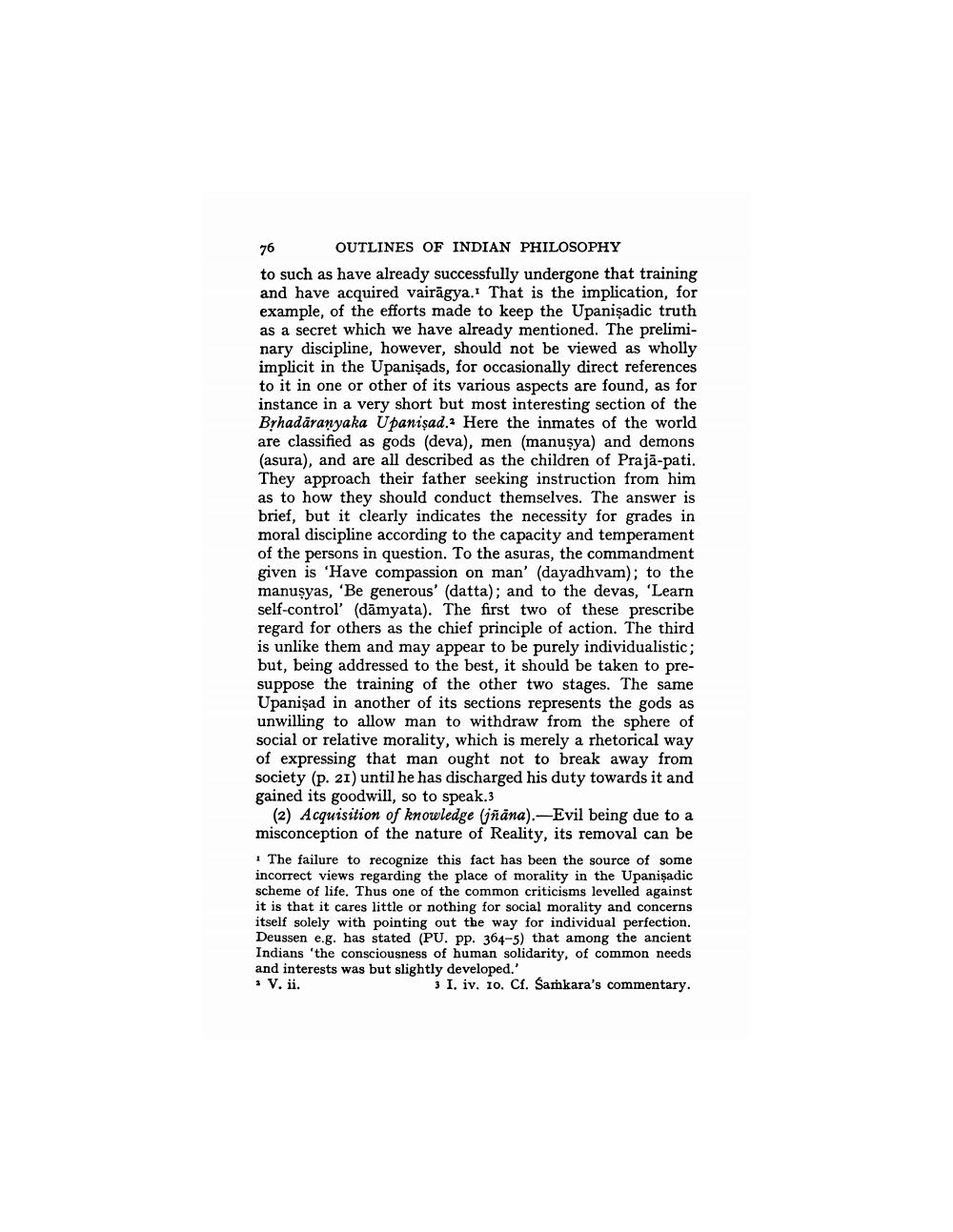________________
76 OUTLINES OF INDIAN PHILOSOPHY to such as have already successfully undergone that training and have acquired vairāgya. That is the implication, for example, of the efforts made to keep the Upanişadic truth as a secret which we have already mentioned. The preliminary discipline, however, should not be viewed as wholly implicit in the Upanişads, for occasionally direct references to it in one or other of its various aspects are found, as for instance in a very short but most interesting section of the Byhadāranyaka Upanişad. Here the inmates of the world are classified as gods (deva), men (manuşya) and demons (asura), and are all described as the children of Prajā-pati. They approach their father seeking instruction from him as to how they should conduct themselves. The answer is brief, but it clearly indicates the necessity for grades in moral discipline according to the capacity and temperament of the persons in question. To the asuras, the commandment given is 'Have compassion on man' (dayadhvam); to the manuşyas, 'Be generous' (datta); and to the devas, 'Learn self-control' (dāmyata). The first two of these prescribe regard for others as the chief principle of action. The third is unlike them and may appear to be purely individualistic; but, being addressed to the best, it should be taken to presuppose the training of the other two stages. The same Upanişad in another of its sections represents the gods as unwilling to allow man to withdraw from the sphere of social or relative morality, which is merely a rhetorical way of expressing that man ought not to break away from society (p. 21) until he has discharged his duty towards it and gained its goodwill, so to speak.3
(2) Acquisition of knowledge (jñāna).- Evil being due to a misconception of the nature of Reality, its removal can be
The failure to recognize this fact has been the source of some incorrect views regarding the place of morality in the Upanişadic scheme of life. Thus one of the common criticisms levelled against it is that it cares little or nothing for social morality and concerns itself solely with pointing out the way for individual perfection. Deussen e.g. has stated (PU. Pp. 364-5) that among the ancient Indians 'the consciousness of human solidarity, of common needs and interests was but slightly developed.' * V. ii.
3 I. iv. Io. Cí. Samkara's commentary.




